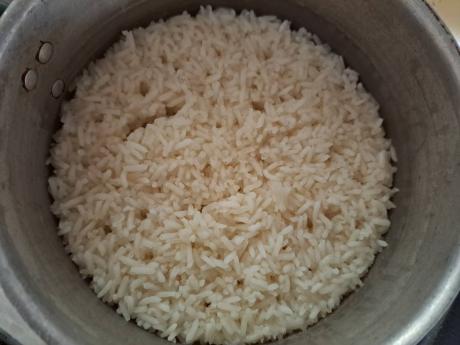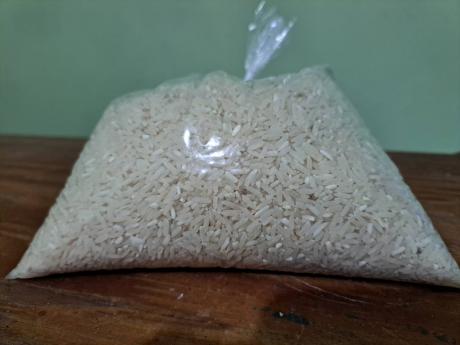Consumers still sceptical about addressing poor-quality rice
WESTERN BUREAU:
WHILE THE Bureau of Standards Jamaica [BSJ] has begun its investigations into complaints about the poor quality of unlabelled bulk rice in supermarkets and wholesales islandwide, some citizens remain concerned about whether the necessary changes will be made for ensured provision of a high-quality product.
Tasha Jarrett, a Trelawny native, told The Gleaner that when she recently sought to purchase rice from a wholesale on behalf of the Falmouth-based school where she worked, she was warned by employees at that establishment against buying the rice.
“When I did the order for school, the guys at the wholesale said it was really bad, the quality of it, so we didn’t take it. We bought it from another wholesale, and we didn’t get any complaints from the cooks, so I guess that bag was okay,” said Jarrett.
“I buy the Grace brand of rice because I don’t like the pound rice as sometimes the quality is really bad, with broken grains and stones in the rice.”
The BSJ began its investigations following the publication of a Sunday Gleaner story on February 25 this year in which consumers reported that the rice they had purchased had several faults including containing questionable residue, being inedible even after careful cooking, and complaints of feeling unwell after consumption.
Just over a month later, a release was issued from the BSJ indicating that rice samples had been taken for testing with action to follow based on the results.
“The National Compliance and Regulatory Authority began an investigation into ‘reports of poor quality or tainted rice being sold in wholesales and supermarkets’. Rice samples have been collected and submitted to the BSJ for laboratory testing,” the release stated.
“Some preliminary results have been received; however, all the relevant laboratory tests have not yet been completed. As soon as all tests are completed and findings assessed, appropriate action will be determined,” the BSJ release added.
But that declaration is not enough for Andre Thompson, a resident of St Catherine, who declared that he has been turned off from buying any more unlabelled rice after an experience in March when the rice he purchased and cooked ended up spoiling quickly.
“I bought the rice at a local supermarket in Old Harbour, and when I cooked it, I found it to be sticky, not the regular ‘shelly’ way it used to be. I figured there was something wrong with my rice cooker, but after I put it in a pot and forgot to take it up overnight, it was slimy and spoiled,” said Thompson. “Since then, I have only had long-grain rice from Grace or other brands. Even if the BSJ does something about it, I have been deterred from purchasing unlabelled rice ever again.”
In July 2023, the BSJ released new draft standards for the US$56 million (J$8.7-billion) rice-importation sector. The draft report spoke to the need for the popular staple to meet safety standards for human consumption, packaging, and testing of samples.
This followed concerns in 2016 about the quality of the rice available on the local market when shoppers in Manchester reported unknowingly purchasing so-called ‘plastic rice’, which they said was ‘stretchy’ when cooked.
In response, the Jamaica Customs Agency announced a temporary halt on the clearance of rice at all ports of entry, pending a meeting with the relevant regulatory agencies to investigate the claims.
Subsequent tests revealed no evidence of substandard rice on the Jamaican market though it was disclosed that rice being supplied from outside of the Caribbean Community would be subjected to further tests before being released into the domestic market.
Following that incident, fresh concerns arose in 2022 about substandard rice on the market after a shipment of rice at the ports reportedly failed to meet certain quality checks, including moisture content and level of broken kernel.
This prompted Minister of Industry, Investment and Commerce Senator Aubyn Hill, under whose ministry the BSJ falls, to announce last year that the Government was working to address the issue of imported substandard commodities that have found their way into the Jamaican market.
According to the minister, checks revealed that there were 137 importers of rice in Jamaica, who were all in breach, and that all the imported rice was supplied by the same place.
Suriname and Guyana accounted for 90 per cent of rice imported into Jamaica in 2021.


